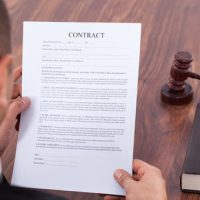Basics of Equipment Leasing

If you’re starting a new business, and it’s one that takes heavy or expensive equipment, you may not have the cash flow just yet, to buy what you need outright. That’s why leasing can be a good option.
But if you look to lease equipment, you’ll likely have a contract put in front of you, possibly with terms you aren’t familiar with.
Here are some basics on equipment leasing, to help you avoid legal troubles and understand what you’re looking at and signing.
Long Term Leases
Most leases are separated into short and long term leases, and which is best for you, depends on the pros and cons of each and your individual situation.
Long term leases have a number of benefits, but of course, a long term lease is probably only good if you have no shorter term plans to replace the equipment, or buy it outright. It also may not be best for technologies that routinely change, and you could end up stuck in a lease with equipment that is outdated.
However, if you do like and intend to hold onto what you are leasing, some leases do give you the option to purchase the equipment at the end of the lease, which could be an affordable solution to long term ownership of heavy or expensive machinery.
A big benefit to longer term leases, is that your lease payments will be smaller. But there is a tradeoff—in a longer term lease, you are more likely to have to bear more of the expenses related to maintenance, repair and upkeep of the equipment.
Like any lease, the lease agreement will require that you return the equipment in good, working order. The longer you have equipment, the more difficult doing that could be.
Shorter Term Leases
You can take most of the pros and cons of long term leases, and flip them when it comes to shorter term leases.
For example, your payments will be more, but the lessor usually has more obligation to maintain and service the equipment, which could save you some money in the long term. And because the lease is shorter, you don’t have to worry about upgrading technologies, or being stuck with equipment that is outdated or that your business has outgrown.
Other Things to Think About
One factor that could affect your decision is insurance. In some cases, the lessor will require you to procure or else pay for the costs associated with insurance.
Whatever kind of lease you have, you also want to see who pays for any taxes, or how the lease may affect your taxes (for better or worse).
Also make sure that you understand renewal provisions, such as whether the lease automatically renews, or whether lease payments go up yearly, or with each renewal. You don’t want equipment that’s affordable now, but which won’t be in a few years.
We can help you understand and negotiate your lease agreements, or create lease contracts that work for you. Call our Fort Lauderdale business law lawyers at Sweeney Law P.A. at 954-440-3993 today.
Sources:
excedr.com/blog/short-term-vs-long-term-equipment-rentals/
trigreenequipment.com/news/how-to/tax-benefits-of-equipment-financing-vs-leasing/

